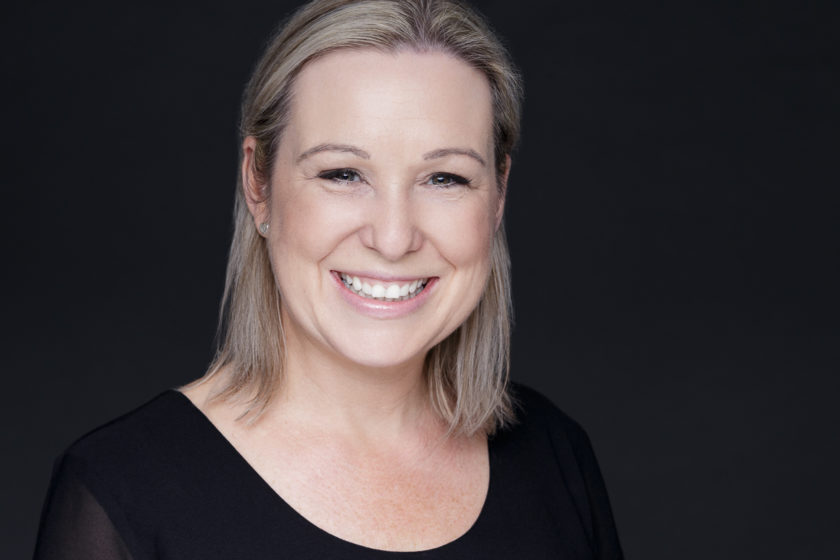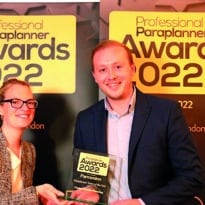Debbie Condon, founder of Intuitive Support, has been vocal about the industry’s cumbersome administration processes. Rob Kingsbury spoke to her about her business and the daily challenges with which administrators and paraplanners are confronted
Debbie Condon, founder and director of outsourced administration service, Intuitive Support, recently posted a LinkedIn article explaining what was wrong with the way the industry dealt with Letter of Authority (LoA)1. “It’s ludicrous that in 2020 such a simple process is so disjointed and difficult. It wastes time and money for everyone, financial advisers, paraplanners, administrators, providers and platforms, and can create huge delays and inconvenience for the end client. Everyone does it in a different way, when surely a process that is required across the industry could be digitised to make it much simpler, easier to complete and cheaper for everyone involved.”
On her website, Debbie has posted a LoA Submission Guide, giving a quick reference of the requirements for around 70 providers2. She also provided user feedback on the recently announced Unipass Letter of Authority service from Origo, which aims to deliver that industry-wide digital service. “I really hope providers quickly get onboard with the ULoA as it will save the industry huge amounts of time and resource and make the journey much better for clients as well.”
You only need to take one look at Debbie’s website to see that organisation and transparency are key attributes of her business. She set up Intuitive Support in 2014, having previously worked as deputy head of operations at 7IM and operations manager at Broadstone Group, and has been growing it organically ever since. The firm now consists of 18 people, including two directors, and serves around 50 financial advice firms around the country. The firm mainly works with smaller firms typically of 3 to 4 advisers but provides overflow support for larger companies also, for example where they need help with work on client reviews or valuations.
Asked about the challenges of establishing a business, she says: “Nobody knows how to run a business when they first set up, so you start with a huge learning curve. Also, at first you jump at every bit of business that comes your way but over time you learn that there are people who don’t fit your business model or the way you work, and sometimes you have to say no or to part company with people.
“They say that if a business is going to fail it’s usually in the first five years, so I’m glad we are beyond that point.”
Intuitive’s administrators are spread around the country, from Northumberland to Bristol. “As a business we operate virtually but it means we can select the best candidates for the role from anywhere in the UK,” Debbie says.
All the staff are employed and there is a mix of full and part-time staff. “They are a fabulous team and I couldn’t be prouder of the work they do for our clients,” Debbie says.
Most new clients come through word-of-mouth referrals and Debbie says she also markets through LinkedIn and social media. “We’ve aimed for gradual growth, taking on a few members of staff every year.”
The model is that every financial adviser is allocated a dedicated administrator, rather than operating on a pooled system. Debbie explains: “All advisers work in different ways and need a variety of tasks done for them, and we believe to serve them well there has to be consistency and continuity and you’re not going to get that from a pooled service. Our administrators learn the advisers’ preferences and the way they want to do things. It makes for a better relationship between us and the adviser.”
An administrator may be working with three or four advisers and will spread the workload through their working week. “It works much the same as an in-house administrator who might be working with a number of advisers, except that its virtual and the administrator is working with different advisers in different firms.”
When advisers come to the firm, Debbie assesses the amount of work they need doing and allocates an administrator from her team with that level of capacity.
Intuitive Support operates on a Pay As You Go basis, charging by the hour, rather than a retainer. It’s a business model which Debbie says has helped her to differentiate the firm.
“When advice firms look to use an outsourced firm I think they can be put off if they are tied in from the outset. They need to establish whether the outsourcing works for them and so a PAYG model gives them the flexibility to try the system and it also means they only pay for the hours they use,” Debbie explains.
It’s a model that finds favour with financial advice firms.
Where the firm solves a problem for advisers, Debbie says, is “for those advisers who need experienced, professional, reliable support for 8-10 hours a week but don’t want to have to employ someone for that period of time, with all that employment entails. We’re a great option for them because they are only paying for the hours it takes to do the job.”
Working with paraplanners is a fundamental part of the process. “We see it as our job to ensure the paraplanners have all they need to do their job,” Debbie says. “They all work differently, so we work alongside them in just the same way as if we were employed by the same firm but working in a different office. We have some really good relationships with paraplanners, in-house and outsourced.”
An exciting development for the business, Debbie says, is that she has just employed a PA to help free up some of her time. “I’m looking forward to seeing what kind of impact she will have. As a business owner, particularly when you are starting from scratch, you literally have to do everything the business needs, but there are only so many hours in the day to do it all. So, this is a big step forward for me. The idea is that it will give me more time to focus on developing and growing the business, which is what we want to do in a controlled way over the next year.”
A challenging year
Last year was one of the most challenging experienced by the business, Debbie says. “When Lockdown occurred we had a number of calls from clients who were seeing their businesses impacted and so wanted to temporarily halt or reduce their hours with us.
“In addition many of us in the business are parents, and at that time we also had our children at home, trying to home school them as well. The team were fantastic. They just got on with things.”
Anticipating that Lockdown would be a bump in the road, Debbie says she knew that although workload had dropped off, furloughing staff could mean losing business. “We held our nerve for eight weeks. It was really tough but then things started to pick up again as advisers and their clients began adjusting to the new ways of working and after the initial Lockdown we became really busy again and we returned to where we were, even during Lockdown 2.”
And there may almost be a silver lining for outsourced businesses that have come through Lockdown, in that it has opened people’s eyes to the fact that remote working is viable, she adds. “I think it has shown advisers that outsourcing is an option that could work well for them.”
Qualities of a good administrator
Clients coming to Intuitive Support can expect continuity, consistency and experience from their administrator, Debbie says. “Every administrator has a solid financial services background – out of our 15 administrators, 13 have over 10 years’ financial services experience. We also train everyone in the software and systems they need to use on our own time, not the adviser’s.”
The overriding factor in any good administrator, Debbie says, is attitude. “You can’t train attitude, people either have the right attitude or they don’t. Then, she lists organisational skills, pro-activeness, and communication skills, tenacity and patience, not necessarily in that order. “And a skill I think is often overlooked is letter writing, the ability to put together a well worded letter.
“It’s these skills I look for, over experience of systems and software, for example. Likewise, qualifications can make a CV stand out but there are a lot of fantastic administrators out there who have no exams.”
The recruitment process for Intuitive Support is “lengthy”, Debbie admits, standing at around 50 questions. “We want to know their industry experience, what systems and software they have used, what problems they may have encountered and how they dealt with them, how they work with advisers and how they communicate with their advisers.”
New joiners to the firm undertake a 1 to 2 week induction. “Everyone works in the cloud and has access to support material, so everyone is on the same page,” says Debbie, “and I talk to everyone most days.”
1 https://www.linkedin.com/pulse/sending-letters-authority-2020-debbie-condon/
2 intuitivesupportservices.com – Under the Quick Links tab




























